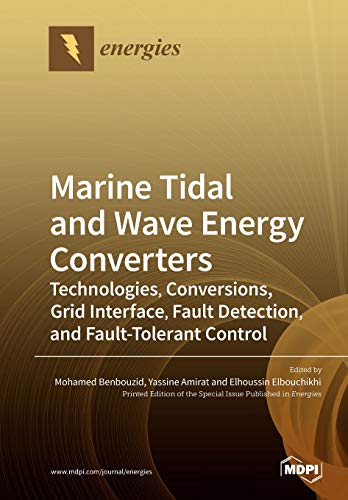

Most ebook files are in PDF format, so you can easily read them using various software such as Foxit Reader or directly on the Google Chrome browser.
Some ebook files are released by publishers in other formats such as .awz, .mobi, .epub, .fb2, etc. You may need to install specific software to read these formats on mobile/PC, such as Calibre.
Please read the tutorial at this link. https://ebooknice.com/page/post?id=faq
We offer FREE conversion to the popular formats you request; however, this may take some time. Therefore, right after payment, please email us, and we will try to provide the service as quickly as possible.
For some exceptional file formats or broken links (if any), please refrain from opening any disputes. Instead, email us first, and we will try to assist within a maximum of 6 hours.
EbookNice Team

Status:
Available0.0
0 reviewsThe worldwide potential of electric power generation from marine tidal currents, waves, or offshore winds is enormous. The high load factor resulting from the fluid properties and the predictable resource characteristics make tidal and wave energy resources attractive and advantageous for power generation and advantageous when compared to other renewable energies. The technologies are just beginning to reach technical and economic viability to make them potential commercial power sources in the near future. While only a few small projects currently exist, the technology is advancing rapidly and has huge potential for generating bulk power. Moreover, international treaties related to climate control and dwindling fossil fuel resources have encouraged us to harness energy sustainably from such marine renewable sources. Several demonstrative projects have been scheduled to capture tidal and wave energies. A number of these projects have now reached a relatively mature stage and are close to completion. However, very little is known to the academic world about these technologies beyond the basics of their energy conversion principles. While research emphasis is more towards hydrodynamics and turbine design, very limited activities are witnessed in power conversion interface, control, and power quality aspects. Regarding this emerging and promising area of research, this book aims to present recent results, serving to promote successful marine renewable energies integration to the grid or to standalone microgrids.